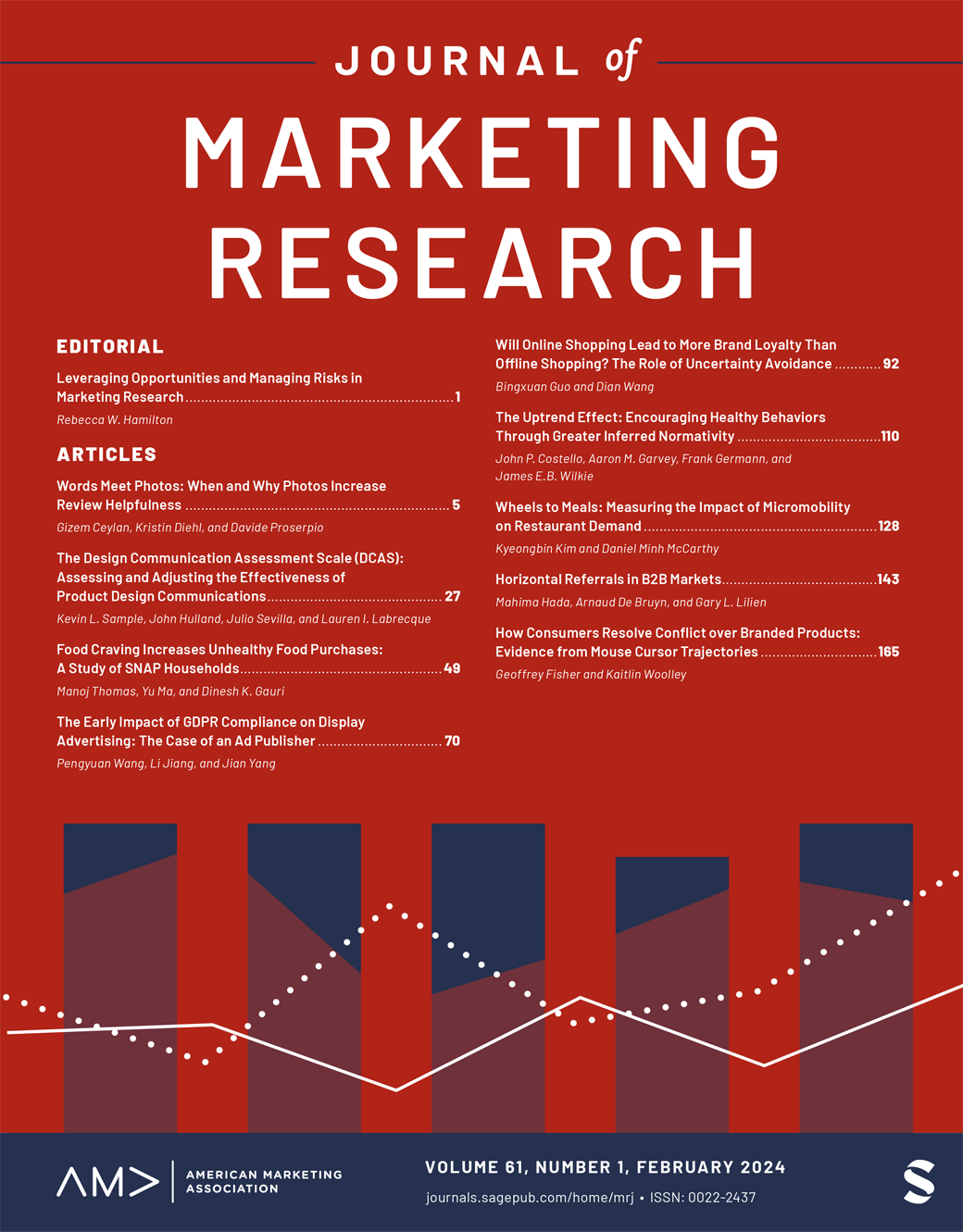EXPRESS: Wait for Free: A Consumption-Decelerating Promotion for Serialized Digital Media
IF 5
1区 管理学
Q1 BUSINESS
引用次数: 0
Abstract
Promotions for digital goods have typically focused on enticing users to hasten their consumption. Here, we investigate a novel deceleration-incentivizing promotional policy, “Wait For Free” (WFF), applied to serialized digital content – sequences of interconnected episodes – monetized via episode-level paywalls. Specifically, customers can sample early episodes of promoted series for free, and can continue to do so by waiting a pre-specified time; or for those unwilling to wait, by paying. WFF can draw users to start viewing a promoted series, and generate revenue through two sources: impatient users opting to pay to consume the next episode immediately; and additional users continuing through to paid-only episodes at the end. We analyze large-scale viewership data from a platform that enacted WFF for digital comics. A comic-level Difference-in-Differences (DiD) analysis provides robust evidence that WFF boosts paid viewership for the promoted series, and the degree of lift varies by user type and over time. A more granular episode-level analysis incorporating inter-comic spillovers and promotional lift heterogeneity suggests that WFF can boost net-of-cannibalization revenue at the platform level: specifically, the model-optimized set of promoted comics performs roughly 18% better than the firm-enacted one and 25% better than the no-promotion baseline; furthermore, WFF and paid-only episodes each receive nontrivial degrees of lift, 70% and 59% respectively.快递:等待免费:连载数字媒体的消费加速促销活动
数字商品的促销通常侧重于吸引用户加速消费。在这里,我们研究了一种新颖的减速激励促销政策--"免费等待"(WFF),该政策适用于系列化数字内容--相互关联的剧集序列--通过剧集级付费墙进行货币化。具体来说,用户可以免费试看推广系列剧的早期剧集,并可在预先规定的时间内继续观看;对于不愿等待的用户,则可付费观看。WFF 可以吸引用户开始观看推广剧集,并通过两个来源产生收入:没有耐心的用户选择立即付费观看下一集;以及更多用户继续观看最后的付费剧集。我们分析了一个为数字漫画制定 WFF 的平台的大规模收视率数据。漫画层面的差异分析(DiD)提供了有力的证据,证明WFF提高了推广剧集的付费收视率,而且提高的程度因用户类型和时间而异。包含漫画间溢出效应和推广提升异质性的更细化的剧集级分析表明,WFF 可以在平台层面提高 "蚕食净收入":具体而言,经过模型优化的推广漫画集的表现比公司实施的漫画集好大约 18%,比未实施推广的基线好 25%;此外,WFF 和付费剧集分别获得了 70% 和 59% 的提升。
本文章由计算机程序翻译,如有差异,请以英文原文为准。
求助全文
约1分钟内获得全文
求助全文
来源期刊

Journal of Marketing Research
BUSINESS-
CiteScore
10.30
自引率
6.60%
发文量
79
期刊介绍:
JMR is written for those academics and practitioners of marketing research who need to be in the forefront of the profession and in possession of the industry"s cutting-edge information. JMR publishes articles representing the entire spectrum of research in marketing. The editorial content is peer-reviewed by an expert panel of leading academics. Articles address the concepts, methods, and applications of marketing research that present new techniques for solving marketing problems; contribute to marketing knowledge based on the use of experimental, descriptive, or analytical techniques; and review and comment on the developments and concepts in related fields that have a bearing on the research industry and its practices.
 求助内容:
求助内容: 应助结果提醒方式:
应助结果提醒方式:


